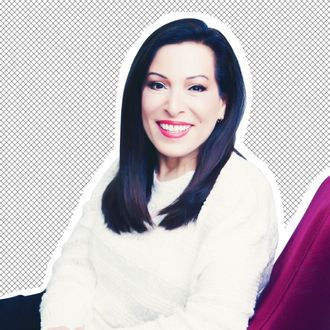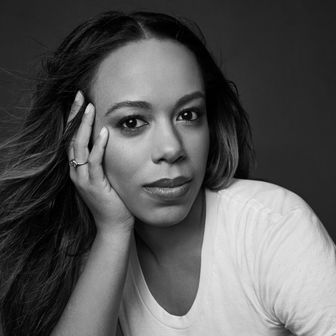
It’s not hard to find honest reviews for skin creams these days, but in the 1980s it was virtually impossible. Paula Begoun, then a young investigative reporter living in Seattle, recognized that women craved candid beauty advice and wrote her first book, Blue Eyeshadow Should be Illegal, as a way to help. The work’s title was a metaphor for how the cosmetics industry shills unnecessary products.
Another seven books and three decades later, Begoun and her skin-care brand, Paula’s Choice, are everywhere. The brand is a cult favorite on skin-care internet, and is known for its varieties of high-powered exfoliants, retinols, and antioxidants, which are offered at palatably low price points. Begoun is known for her tough critiques on the industry as a whole — many of which are expressed through Beautypedia, a hub within paulaschoice.com that reviews beauty products from other brands.
Begoun recently visited New York, where the Cut caught up with the internet’s “Cosmetics Cop.”
You founded Paula’s Choice in 1995, in part, because you were frustrated with misinformation spread by the cosmetics industry. Do you think that there’s been any improvement in the industry overall, or has it gotten worse?
Are you kidding? It’s worse. Now the same bullshit just follows website after website after blog. The information has gotten crazier. Now it’s: “parabens are bad, mineral oil is bad, and if you drink water your dry skin is going to go away.” The myths are endless. And then there’s “natural skin care.” You can’t make an SPF 30, which is the new standard — particularly a water-resistant one — with just natural ingredients.
Would you be open to creating a good natural product, to satisfy customers who might really care about ingredients?
You’d be cheating your skin. You can’t take care of acne. You can’t take care of clogged pores. They [natural skin-care companies] will tell you that willow bark works like salicylic acid. That’s not true. You wouldn’t give up your aspirin and chew on willow bark to get rid of your headache or menstrual cramps. That would be like using a dial-up internet connection versus what we do today.
Do you think there’s an element of sexism in the way that natural skin care is marketed towards women, particularly when it comes to fear-mongering?
No. Well, I don’t know. I mean, I care about the environment and ingredients. I do. I also care about the drugs I take for my health problems that aren’t natural. I care about wrinkles, I care about sun damage, I care about my acne. I drive a car, I fly in an airplane. I try to do it in a balanced manner, and that’s how we formulate products.
When it comes to women’s desires to take care of themselves, to look young, to feel beautiful … that’s called estrogen. That’s not sexism, that isn’t oppression from the fashion magazines. What I care about is whatever their definition of beauty is, that they use products that can help them achieve it.
I think the problem is comparative beauty, where at any age, you’re looking at somebody else and then saying, “I want that,” as opposed to saying, “Well, I want a little bit of that, I want a little bit of that.” And you experiment with finding that self definition, and to work on letting go of the comparative.
What is your personal relationship to skin care?
I don’t have to be high maintenance to have great skin. I barely have time to brush my teeth, let alone take care of my skin. My skin-care routine is about five minutes in the morning, maybe less. I’m fast. I also want to get to bed. My beautiful boyfriend is sitting there. What the hell am I doing at the sink putting on a face mask? I’d rather be next to him.
There’s a school of thought that says you should wait several minutes in between certain steps in your skin-care routine so that any products with pH-dependent ingredients, like glycolic and salicylic acids, have enough time to absorb at an effective pH.
You don’t have to wait.
Why don’t you?
That’s like saying you have to wait between eating foods. It takes a lot to shift a pH. Your skin’s pH doesn’t shift unless you’re combining it with something alkaline [having a pH higher than 7]. First of all, all your products should be under a pH of 7, and most are these days. It’s the rare product we run into that’s over 7. It would take an alkaline ingredient of like 11 or 12 to shift a pH of any product that fast.
What’s your skin-care routine like?
In the morning I do my skin-balancing cleanser, my toner, my ten percent niacinamide, my ultra-light antioxidant concentrate, my eye moisturizer, and my hydroquinone.
At night I repeat most of that, but then I add my BHA liquid — wouldn’t live without it and there’s a reason it’s my best-selling product. And then I go to sleep with my lip and body balm; I never leave my lips naked at night.
Paula’s Choice is one of the few brands to take a big stance against fragrance in skin care because of its ability to irritate. Why hasn’t the industry as a whole advocated against fragrance in the same way they advocate against parabens and mineral oil?
Why would they? It’s very hard to sell a negative. I’ve thought that my whole life. In fact, one of the main reasons I created an eye cream is because 90 percent of women came to my website asked for an eye cream. It’s hard to talk against a multi-billion dollar industry, and so I made the eye cream because if you’re gonna use an eye cream, at least use a really good one that doesn’t have fragrance and essential oils and synthetic coloring agents. I hate when I see synthetic coloring…what an unnecessary thing to do so a woman sees a pink product.
The industry knows that women like when products smell nice. You don’t necessarily know that it’s causing damage — it’s a very technical thing. The issue is that skin hides damage and hides inflammation very well. If you don’t use sunscreen, you’re going to get collagen damage, DNA destruction, a skin-barrier breakdown. Fragrance is a volatile ingredient and that volatility causes inflammation. It’s just physics. In fact, you know what’s sad about parabens?
What?
Parabens were actually the best broad spectrum, gentle, naturally derived preservatives, and the misguided fear-mongering around them is just absurd. Women are so frightened and words like “parabens” and “natural” are the buzzwords they know. They don’t know that lavender is an endocrine disruptor. They don’t know that menthol, peppermint, eucalyptus, rosemary oil, and almost every essential oil causes skin damage. It’s easier to be scared of a synthetic ingredient than a natural ingredient.
Yeah. That’s very true.
I don’t want you to be scared of a natural ingredient. I just want you to know what works and what doesn’t. There is more research about cosmetic and pharmaceutical-grade mineral oil and how it helps wound healing. Like, it would blow you out of the water. Mineral oil doesn’t contain benzenes [a carcinogen]. Please.
You mentioned that you started an eye cream. For years Paula’s Choice famously rallied against eye creams, arguing that they were a waste…
I held out on eye creams for the longest time. But then the pressure from the consumer just became … in fact, I’ll never forget it: my sister’s best friend said, “Can you just send me that moisturizer that you use around the eye and put an eye cream label on it?” I thought, “Screw this!” And then I made an eye cream.
Sheet masks are more popular than ever, but you don’t like them. Why?
A lot of people do things that are a waste of time. Sheet masks don’t deliver ingredients to the skin any better than well-formulated skin-care products. I’d rather you use a great leave-on product and get to bed, or get your makeup on and have a healthy breakfast, than sit with a sheet mask on your face.
It’s just unnecessary and some of them are just badly formulated. They run, they drip, they’re sticky, they contain hairspray ingredients so it sticks to your face … I mean some of them are just a hot mess. I tell Paula’s Choice, “If you come out with a sheet mask while I’m alive, I’ll quit.”
Well, so there’s no truth to the fact that—
Nope.
—it’s trapping the moisture?
Nope.
No?
No. Absorption is all about the molecular size of the ingredient. A lot of ingredients are needed just on the surface — polyuronic acid, ceramides, antioxidants — to interrupt what the environment is doing before it affects your skin. And then there’s the ingredients that you need to absorb deeper because they can talk to a skin cell and tell it to do something healthy — peptides, retinol. A brilliantly formulated product leaves some ingredients on the surface, some ingredients a little lower down and some ingredients deeper down. And it does it all based on molecular size, not on a sheet mask trapping the ingredients.
That is interesting.
So yeah, that’s a huge myth. There are so many myths. It’s exhausting. That’s why I can’t retire. I’m 65. I need to retire.
Paula’s Choice started on the internet. What is your take on all of the new internet beauty brands?
I have an ego thing about it. Some of them are just copying me. I don’t know, maybe that’s flattery. What I see throughout the industry, regardless of little brands or big brands, is what I have always seen. A mix of good products and bad products. Products that still come in jars. Products that say they can do things that they can’t do. Products that say they’re better than Botox, products that just out and out lie.
Why did you launch Paula’s Choice on the internet? Back then hardly any companies were internet-based.
Can you imagine? Nobody knew what the internet was! I would love to say I was a visionary. The truth of it is that I didn’t want to write another book. People had been saying along the way, “Why don’t you just create your own products?” So that’s what I did. I didn’t start it thinking I wanted to be a master of the universe, I didn’t want to be the next Estée Lauder. I just wanted to pay rent, eat dinner, and make great skin care.
Paula’s Choice is quite popular on Reddit. Do you ever read what people have to say about the brand on Reddit’s skin-care threads?
Oh, no. I know they exist and I’m flattered, but with the amount of writing and research I do, I barely have time.
Do you have a favorite beauty blog?
Mine.
Okay.
When I want to bust myths, I go other places. I’m doing medical journals and I’m doing science journals. There’s so much new research, it hurts.
Paula’s Choice recently installed a new CEO. Can you clarify your current relationship with the brand?
God bless our new CEO [Tara Poseley]. A woman running a cosmetics company is just not typical. Paula’s Choice has gone through two sales, which made me a very successful businesswoman. But I wouldn’t hire me to be a CEO of a company. I mean, I don’t know how to read a legal contract. I couldn’t do a budget. They [TA Associates] came in and created a new management structure, and I got to do just content [Truth in Beauty], product development, and go around the world and talk to people. I love it. I get to do what I love.
This interview has been edited and condensed.





